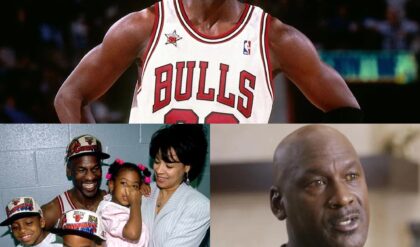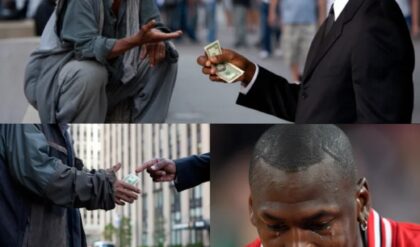
The controversy began at the 2024 Paris Olympics on Thursday when Italian fighter Angela Carini quit her bout against Algerian boxer Imane Khelif, 46 seconds into the match
Algerian boxer Imane Khelif and the International Olympics Committee have landed in the middle of a divide about gender in sports after her Italian competitor, Angela Carini, pulled out 46 seconds into their bout at the 2024 Paris Olympics and didn’t shake Khelif’s hand.
Moments after, Carini fell to her knees crying, saying she quit because of the pain from Khelif’s opening punches.
“My face and nose were hurting,” Carini said, according to the Italian sports daily Gazzetta dello Sport. “I couldn’t breathe anymore. I thought about my family, I looked at my brother in the stands and I went to my corner to retire. … I’ve never been hit with such a powerful punch.”
Carini said the move wasn’t premeditated, and that she wasn’t making a political statement about Khelif, who was disqualified from last year’s world championships after failing an unspecified gender eligibility test.
Carini was apologetic for not shaking Khelif’s hand after the bout.
“It wasn’t something I intended to do,” Carini said. “Actually, I want to apologize to her and everyone else. I was angry because my Olympics had gone up in smoke. I don’t have anything against Khelif. Actually, if I were to meet her again I would embrace her.”
Carini also commented on the gender controversy surrounding the incident, and insisted that she supports her opponent.
“All this controversy makes me sad,” Carini said. “I’m sorry for my opponent, too. … If the IOC said she can fight, I respect that decision.”
Still, the move has reopened debate about Khelif’s status, leading the International Olympic Committee to address the issue, with spokesperson Mark Adams telling reporters Friday that there has been “a lot of misinformation around on social media particularly, which is damaging.”
Here’s what to know about the controversy, if Khelif will fight again, what the International Olympic Committee has said and where things stand.
Who is Algerian boxer Imane Khelif?
Born in 1999, Khelif is from rural northwestern Algeria. Her father initially didn’t approve of girls participating in boxing, but Khelif said she gave up soccer as a teenager to pursue her new passion, even though she had to travel 10 kilometers each way to the gym.
Khelif eventually caught the attention of Algeria’s national team, making her major tournament debut in 2018 with a first-round loss at the AIBA — now the International Boxing Association — world championships. She lost five of her first six elite-level bouts, but improved and excelled.
Khelif was one of Algeria’s first three Olympic women’s boxers sent to Tokyo three years ago. She won her opening bout but lost her second to eventual gold medalist Kellie Harrington of Ireland.
She also raised her profile by doing well in the next two world championships, and she even became a UNICEF national ambassador early this year.
But Khelif was decidedly not known as a dominant champion, an overpowering physical specimen or even a particularly hard puncher at her weight — not until this week in Paris.
Why was Khelif disqualified from the world championships?
Khelif was disqualified from the 2023 world championships after failing unspecified and untransparent eligibility tests for women’s competition from the now-banned International Boxing Association, which cited high levels of testosterone in her system.
The circumstances of that disqualification have been considered highly unusual ever since it happened, and Khelif called it “a big conspiracy” at the time.
Khelif was assigned female at birth and it says so on her passport, which is the IOC’s threshold for eligibility for boxing because of the rift between the sport’s governing body and the IOC.
She had previously competed without issues and was disqualified by the sport’s governing body only after she defeated Russian boxer Azalia Amineva in the 2023 tournament. The IBA is controlled by Umar Kremlev, who is Russian and brought in the state-owned energy supplier Gazprom as its primary sponsor and moved much of the governing body’s operations to Russia.
What does the International Olympic Committee say?
This week, the IOC described it as “a sudden and arbitrary decision by the IBA” in which Khelif and Olympic boxer Lin Yu-ting of Taiwan “were suddenly disqualified without any due process.” Lin had also disqualified from the 2023 world championships after the IBA ruled she had failed unspecified gender eligibility tests, but provided no documentation.
The reasons for the two disqualifications are extremely murky, as is almost always the case with the IBA. The governing body has revealed little about the nature of the tests, including what was tested and who tested it. This lack of transparency would be unacceptable in major Olympic sports, and the IBA has been banned from the Olympics since 2019.
The IOC noted Thursday that the boxing association’s own documents say the decision was made unilaterally by the IBA’s secretary general. Those documents also say the IBA went on to resolve at a meeting that it should “establish a clear procedure on gender testing” after it had already disqualified the two fighters.
“This is not a transgender issue,” Adams said during a press conference Friday, in an attempt to provide clarity. “These women have been competing in competitions for many years. The testosterone is not a perfect test. Many women can have elevated levels of testosterone, which is in what would be called ‘male levels’ and still be women and still compete as women.”
For the political far-right in Italy, which has been targeting issues such as LGBTQ+ rights, Khelif’s participation was just the latest evidence of “woke” culture infecting sport. Italian Premier Giorgia Meloni, who met Friday with IOC President Thomas Bach, warned “ideology” taken to extremes can discriminate and harm women’s rights.
The IOC has repeatedly defended Khelf’s right to compete this week.
“Despite our requests to have certainties and guarantees, both for the safety of our athlete and for the regularity of the competition, they’ve confirmed that (Khelif) is within these parameters,” Italian Olympic Committee president Giovanni Malagò said.
What are the rules around boxing in the Olympics?
Boxing in Paris is being run by a special IOC-appointed unit that the Olympic body says is applying rules, including eligibility decisions, that are based on the 2016 Games in Rio de Janeiro following the split with the sports governing body.
The IOC insisted this week that no scientific or political consensus exists on gender and fairness issues. It gave updated guidance to sports governing bodies in 2021.
Several sports bodies have updated their eligibility rules since the Tokyo Olympics were held in 2021, including World Aquatics, World Athletics and the International Cycling Union. They all decided to bar athletes from women’s events who have transitioned from male to female and went through male puberty.
World Athletics also tightened rules last year to include testosterone testing for some athletes legally identified as female at birth though with a medical condition that leads to some male traits.
Will Khelif compete again at the Olympics?
The Hungarian Boxing Association says it is sending letters of protest to both the IOC and Hungary’s Olympic committee over Anna Luca Hamori’s quarterfinal matchup with Imane Khelif of Algeria in women’s boxing at the Paris Olympics.
According to the Olympics schedule, the fight is planned for 10:22 a.m. CT on Aug. 3. inside the North Paris Arena.
Hamori still will accept her fight on Saturday against Khelif, according to MTI, Hungary’s state news agency.
MTI was told of the association’s plans Friday by Lajos Berkó, a member of the association’s executive board. The association also is investigating the possibility of legally challenging Khelif’s presence.
“I am very sad that there is a scandal and that we have to talk about a topic that is not compatible with sport,” Berkó said. “This is unacceptable and outrageous.”
The boxing association plans to “express our indignation and request that the IOC reconsider its decision, which allowed a competitor into the IOC competition system who was previously banned from the (International Boxing Association’s) world championships,” Berkó said.
Hamori is Hungary’s first women’s boxer at the Olympics, and she expressed no qualms about fighting Khelif immediately after she earned her quarterfinal berth in the 66-kilogram division by trouncing Australia’s Marissa Williamson Pohlman.
“I’m not scared,” Hamori said. “I don’t care about the press story and social media.”
“This from my point of view was not an equal competition,” Meloni said Thursday while in Paris, where she consoled Carini after she ended the match.
On Friday, Meloni met with IOC President Thomas Bach and both agreed that the Italian government and IOC “would remain in contact to evaluate how to confront the issue in the future.”

